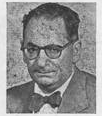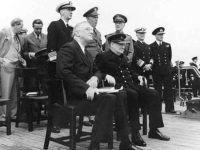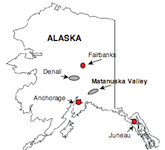Benjamin Akzin (1904-1985) was a staff member of the War Refugee Board and an advocate of U.S. air strikes on railways leading to the Auschwitz death camp and the gas chambers and crematoria within the camp.
After completing doctorates in political science and law at the universities of Vienna and Paris, the Latvian-born Akzin traveled to the United States in the 1930s to complete a third doctorate, at Harvard. Akzin was active in the Revisionists’ New Zionist Organization of America, and in 1940 he became one of the first Zionist lobbyists in Washington, when the NZOA sent him to Capitol Hill to seek support for Jewish statehood. After a stint with the legal department of the Library of Congress, Akzin landed a position on the staff of the War Refugee Board shortly after it was established in early 1944.
In May and June, the Board received appeals from Jewish leaders in Europe, asking the U.S. to bomb the railroad lines from Hungary to Poland, which were being used for the deportations. Board director John Pehle forwarded the appeals to Assistant Secretary of War John McCloy. In a note to his assistant, McCloy instructed him to “kill” Pehle’s request by rejecting the bombing proposal as “impracticable” because it would require “considerable diversion” of planes needed for the war effort.
In a memorandum to his War Refugee Board colleagues at the end of June, Akzin made the case for bombing. This was the first time that a U.S. government official presented a complete, carefully-reasoned proposal for bombing.
Akzin went beyond the idea of hitting the railroad lines and argued that the Allies should bomb the mass-murder machinery within Auschwitz itself. Destroying the camp, he wrote, would “slow down the systematic slaughter, at least temporarily,” since “it would require some time” for the Germans to rebuild the gas chambers and crematoria, and “with German manpower and material resources gravely depleted,” the Germans might not even be able to “equip new large-scale extermination centers” at all.
Such bombings “would presumably cause many deaths among their personnel–certainly among the most ruthless and despicable of the Nazis,” Akzin wrote. He acknowledged that some of the Jewish prisoners might also be killed in such raids, “but such Jews are doomed to death anyhow,” and the destruction of the camps…might save the lives of future victims.”
Akzin also emphasized the military value of such bombings, pointing out that “the important mining and manufacturing centers of Katowice and Chorzow” were just fourteen miles from Auschwitz, and they “play an important part in the industrial armament of Germany. Therefore, the destruction of these camps could be achieved without deflecting aerial strength from an important zone of military objectives.”
Thanks in part to Akzin’s persistence, the Board continued to press the War Department on the bombing issue in the months to follow. But each time Pehle presented a bombing request, it was rejected on the grounds that the Department had already conducted a “study” and found that it was not militarily feasible, although in fact no such study had been undertaken.
Sources: Wyman, The Abandonment of the Jews, p.295;
Penkower, The Jews Were Expendable, p.204;
Medoff, Militant Zionism in America, p.115











